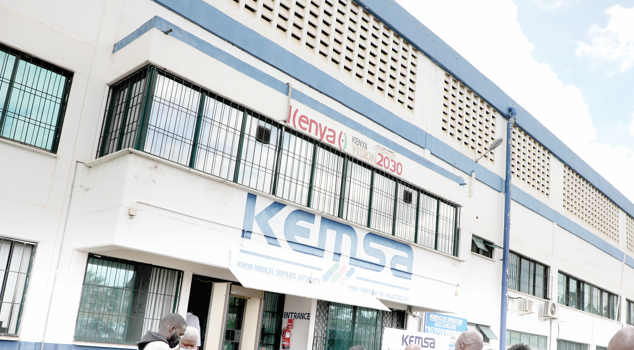Legislators approve Sh1.7b sugar firms’ debt write-off

The government has allocated Sh1.7 billion for compensation of cane farmers in the five State-owned sugar companies.
Agriculture and Livestock Cabinet Secretary Mithika Linturi told MPs the decision to compensate farmers in Nzoia, Muhoroni, Chemelil, Sony and Miwani state-owned mills follows the decision of the government to write off loans amounting to Sh67.8 billion that the government owes said companies.
Linturi, who had appeared before the committee on Agriculture and Livestock chaired by Tigania West MP John Mutunga to defend the Supplementary Budget for FY 2023/24 said there is a need for cane farmers to be compensated.
He, however, raised concern that there is no allocation for the maintenance of the Cane Testing Units yet the ministry has already utilised Sh4 billion already allocated to it.\
He added without adequate funds for maintenance, the project risks stalling and becoming a white elephant, which may lead to greater costs of reconstruction over time.
Said Linturi: “A provision of Sh1.7 billion for Sugar Reforms for sugarcane farmers’ compensation in Nzoia, Muhoroni, Sony, Miwani and Chemelil sugar companies. This is an implementation of the report of this committee on the action plan on the revival of the sugar sector.”
MPs approved the writing-off of the loans on grounds that all the five public sugar companies are faced with dire financial difficulties thus resulting in some failing to undertake annual machinery maintenance for many years.
To this effect, the lawmakers directed the National Treasury to pay Sh1.7 billion as arrears to the farmers and another Sh5.2 billion as salary arrears and other emoluments after the National Treasury remained silent on the treatment of staff salary arrears amounting to Sh5.2 billion, and other creditor’s payables of Sh26.7 billion.
Nzoia has arrears worth Sh269.6 million owed to farmers and Sh1.8 billion owed to staff as salaries and other emoluments, Miwani has no arrears, Muhoroni owes farmers Sh316.7 million and another Sh1 billion is owed as salaries and other emoluments while Chemelil owes farmers Sh231.3 million and Sh1.1 billion as salaries and other emoluments.
Linturi disclosed that the government had set aside Sh2 billion to buy 370,370 bags (90kg) translating to Sh5,400 per bag of white maize to boost food security.
He also revealed the establishment of National Cereals and Produce Board (NCPB) Warehouse in Siaya has been allocated Sh470 million with Sh250 million already disbursed. He, however, asked the committee to determine the appropriate agency cost charged by NCPB per bag- to avoid cost overruns as witnessed between defunct the Strategic Food Reserves and NCPB. He said: “We have introduced the National Food Reserve, with an allocation of Sh2 billion designated for the purchase of white maize to boost food security measures.”
Linturi, who said that the department’s allocation had been increased by Sh13.5 billion raised concerns that the State department has seen a reduction of Sh110 million from the allocation for compensation of employees; personnel emoluments.
He also regretted the allocation for the Food Security and Crop Diversification Project- which one of the Bottom-Up Economic Transformation Agenda (Beta) projects has been reduced by Sh230 million. He added: “This is one of the key projects meant to provide various seed and seedlings to the identified value chains and therefore the move to reduce will counter the effort to support the value chains.”
On fertilizer subsidy, he said the department utilised Sh7.3 billion to provide subsidised fertilizer for the short and long rain seasons.
MPs present while lauding the move raised questions regarding duplication of functions within agencies which have undertaken overlapping farmer and livestock registration initiatives in the past.
They demanded information on the status of payment of Small-Scale Grain Millers who supplied maize during the 2022 maize subsidy programme as well as queried the fate of critical agricultural institutions such as the Agricultural Finance Corporation (AFC) and the viability of donor funded projects such as the Enable Youth Programme.
“Farmers and Livestock registration should be harmonized across all 47 counties. The ministry needs to have a streamlined approach to data management and dissemination to avoid duplication.”











